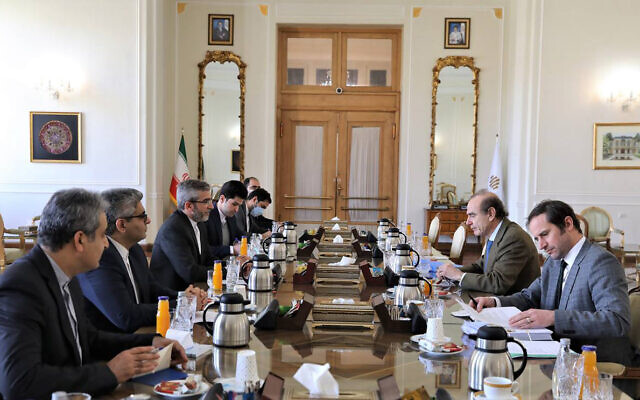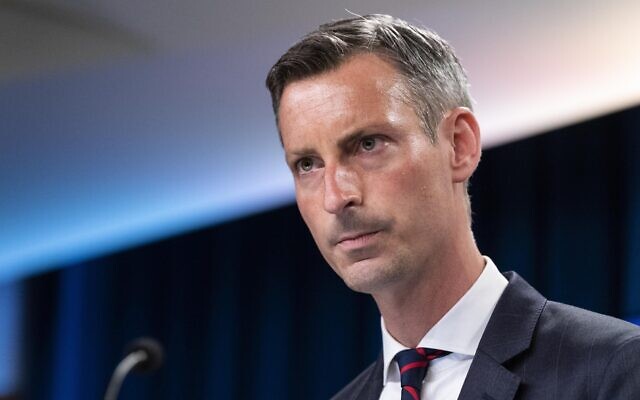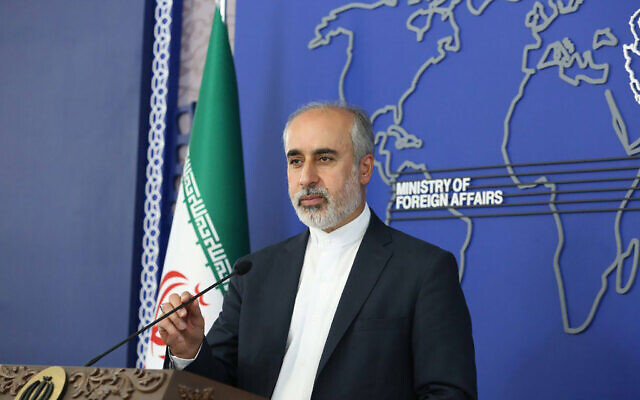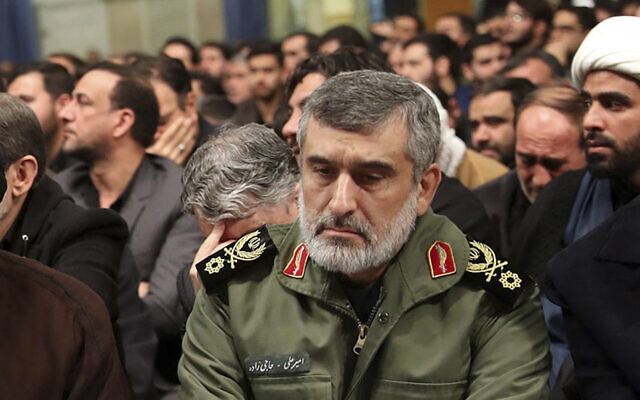State Department says Washington reviewing Iran’s comments on EU’s ‘final’ draft proposed, as top IRGC official warns Iran capable of striking Israel without nuclear weapons

WASHINGTON — The United States denied on Monday allegations that it is stalling an effort to resurrect the Iran nuclear deal after a “final” draft was circulated last month.
“The notion that we have delayed this negotiation in any way is just not true,” said State Department spokesman Ned Price during a press briefing.
After the EU sent the proposed text to both Tehran and Washington in late July, Iran “responded with several comments,” Price said, without elaborating.
“This is why it has taken us some additional time to review those comments and to determine our response of our own,” he said.
“We are seriously reviewing those comments.”
Earlier Monday, EU foreign policy chief Josep Borrell, who is leading the effort to bring the United States and Iran together in agreement, suggested Washington was now slowing the process.

“There was an Iranian response that I considered reasonable to transmit to the United States,” he said.
“The United States has not formally replied yet. But we are waiting for their response and I hope that response will allow us to finish the negotiation — I hope so, but I can’t assure you of it.”
Earlier Monday, Price’s Iranian counterpart Nasser Kanaani accused the Biden administration of “procrastination” and European negotiators of “inaction.”
“America and Europe need an agreement more than Iran,” Kanaani said during a press conference.
“We seek a good agreement [that] would… be long-lasting… [because] we won’t be bitten twice,” he added in an apparent reference to Tehran’s frustration over former US president Donald Trump’s decision to withdraw from the Joint Comprehensive Plan of Action in 2018, just three years after it was signed. Trump followed up the move by instituting a “maximum pressure” sanctions campaign against Iran, which responded by rapidly accelerating its nuclear activity in violation of the JCPOA.
Since coming into office in January 2021, US President Joe Biden has pressed to revive the agreement, which traded sanctions relief for curbs on Iran’s nuclear program.

Price said Washington was “encouraged” by the fact that Tehran appeared to have dropped an earlier demand that, to complete a deal, the United States remove its formal designation of the Islamic Republican Guard Corps as an international terrorist organization.
That was one of the issues that has appeared to hold up progress on a final agreement that was sketched out in March.
“That’s part of the reason why a deal is closer now than it was two weeks ago, but the outcome of these ongoing discussions still remains uncertain as gaps do remain,” Price said.
“We are working as quickly as we can to put together an appropriate response to the Iranian paper,” he said, without specifying when that response would be ready.
Separately on Monday, a senior IRGC official told a newspaper linked to the country’s Iran’s Supreme Leader Ali Khamenei that Iran is capable of striking Israel even without nuclear weapons.

“We don’t have nuclear [weapon], but our warheads are enough to plow that location several times,” IRGC Aerospace Chief Hajizadeh told the Kayhan daily.
In a tweet about the remark, Prime Minister Yair Lapid’s international spokeswoman Keren Hajioff wrote,
“Iran’s terrorist regime seeks Israel’s annihilation. They don’t even try to hide it.”
Israel opposes the effort by world powers to revive the nuclear deal, claiming it would provide Iran with significant funds to boost its support of terror activities in the region.
Lapid vowed in a Monday conversation with French President Emanuel Macron that Israel would do whatever it takes to head off a nuclear-armed Iran.
As reported by The Times of Israel
